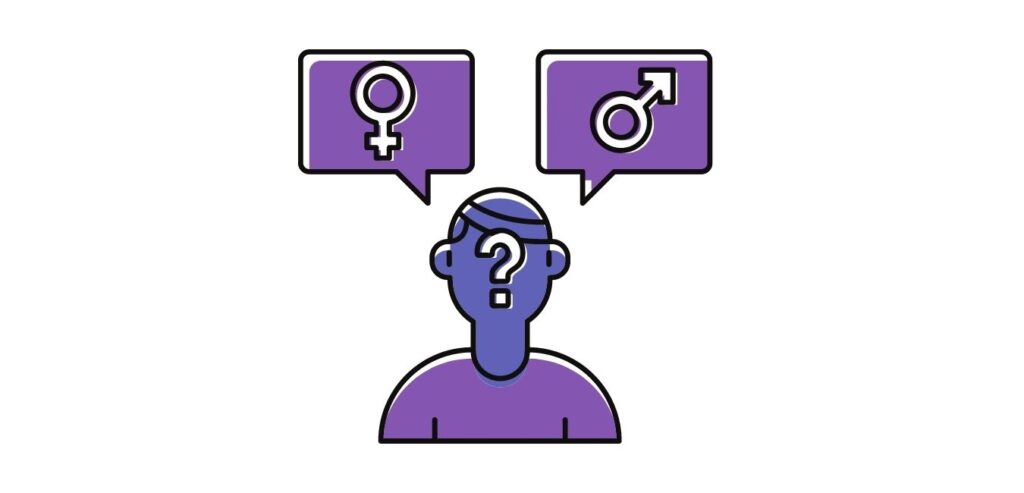What is the definition of sexual orientation?
Sexual orientation refers to the people with whom you are attracted and wish to form relationships. Gay, lesbian, straight, bisexual, and asexual are all sexual orientations. There are a few different categories of sexual orientation that are often used to characterise people:
Heterosexual relationship (straight).
Guys are romantically and physically attracted to females, and females are romantically and physically attracted to males. Heterosexuals are frequently referred to as “straight.”
Homosexual (gay or lesbian).
Homosexuals are romantically and physically drawn to others of the same sex: females are drawn to other females, and males are drawn to other males.
Bisexual.
Bisexual people are attracted to people of both sexes romantically and physically.
Gender identity and sexual orientation are not the same thing.
Sexual orientation refers to the people you are romantically, emotionally, and sexually attracted to. It’s not the same as gender identity. Gender identification refers to who you ARE – male, female, genderqueer, etc. — rather than who you are attracted to. Being transgender (feeling as if your assigned sex is quite different from the gender you identify with) is not the same as being gay, lesbian, or bisexual. Sexual orientation refers to who you desire to spend your time with. It’s all about who you are when it comes to gender identity.
What Age Do Children “Know” about Sexual Orientation?
Knowing one’s sexual orientation — whether straight or gay — is something that many children and teenagers understand from an early age. Some gay teenagers claim to have had same-sex crushes as their straight friends had opposite-sex attractions as children.
Many gay teenagers understand their sexual orientation by middle school, when they enter puberty, whether or not they have told anybody else. Those who didn’t understand they were gay at first often say they’ve always felt different from their classmates but couldn’t put their finger on why.
It might take some time to become aware of — and come to terms with — one’s sexual orientation. As teenagers work through their developing sexual sensations, they frequently think sexually about both the same sex and the opposite sex.
As they explore their sexuality, some teenagers may experiment with sexual experiences, including those with people of the same sex. However, these events may not necessarily indicate whether a teen is gay or heterosexual. For many teenagers, these events are simply part of the process of figuring out their sexual identities. And, contrary to popular belief, masculine and feminine characteristics do not always indicate whether a person is straight or gay.
Some homosexual teenagers may feel at ease and accept their sexuality once they are aware of it, while others may find it puzzling or difficult to accept.
What if I don’t want to be identified by a label?
If you don’t want to be labelled, that’s fine. You are the only one who can determine which sexual identity best describes you. However, some people may feel that none of the commonly used labels are appropriate for them.
Your sexual orientation and identity do not have to change over time. It could also change based on who you’re attracted to, romantically involved with, or sexually active with. This is very normal behaviour. There’s no reason why a label you’ve claimed can’t evolve as you do.
Changing your identity does not imply that you are “perplexed.” Many people, young and old, go through shifts in who they like and how they identify. This is referred to as “fluidity.”
Where I Can Get consultation for Sexual Orientation and Genter Identity Problems ?
Dr. Rameez Shaikh, MD is NeuroPsychiatrist and Counsellor in Nagpur helping children and Adult with Sexual orientation and Gender identity problem. At Mind & Mood Clinic, We provide scientific and evidence based counselling for LGBTQ issues. As an LGBTQIA+ affirmative Psychiatrist and therapist, Dr. Shaikh also work with many LGBTQIA+ clients, some of whom come to therapy to explore issues relating to gender, sexuality, diversity, and relationships (GSDR). Our goal at Mind & Mood Clinic is to provide an empathic, non-judgmental, and confidential space where you can examine tough events and feelings in a safe and supportive atmosphere.Feelings can include exciting, erotic and pleasurable experiences that you might want to understand in more depth also. Sessions are 50 minutes long and are scheduled on a weekly basis. You can also consult online with Dr. Rameez Shaikh for 100% Confidential and Private Therapy.

Dr. Rameez Shaikh (MBBS, MD, MIPS) is a consultant Psychiatrist, Sexologist & Psychotherapist in Nagpur and works at Mind & Mood Clinic. He believes that science-based treatment, encompassing spiritual, physical, and mental health, will provide you with the long-lasting knowledge and tool to find happiness and wholeness again.
Dr. Rameez Shaikh, a dedicated psychiatrist , is a beacon of compassion and understanding in the realm of mental health. With a genuine passion for helping others, he combines his extensive knowledge and empathetic approach to create a supportive space for his patients.

